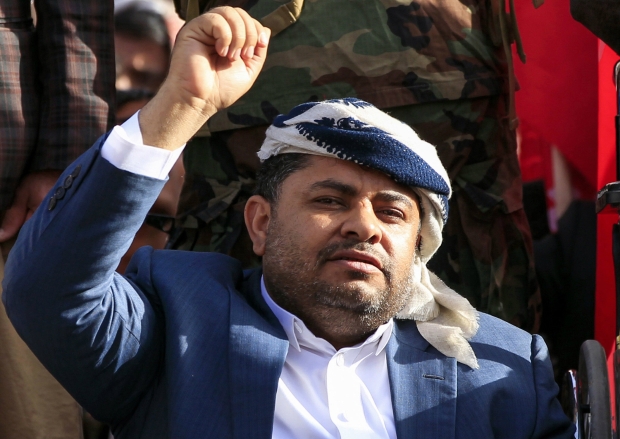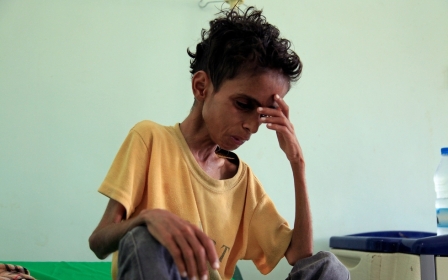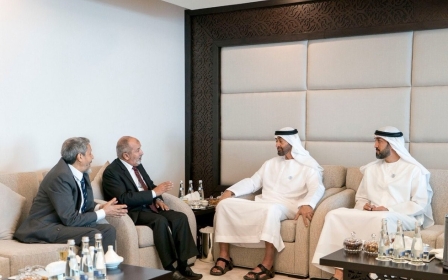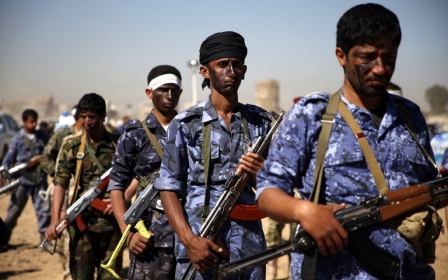Yemen's Houthis agree to stop rocket and drone attacks on Saudi-led coalition
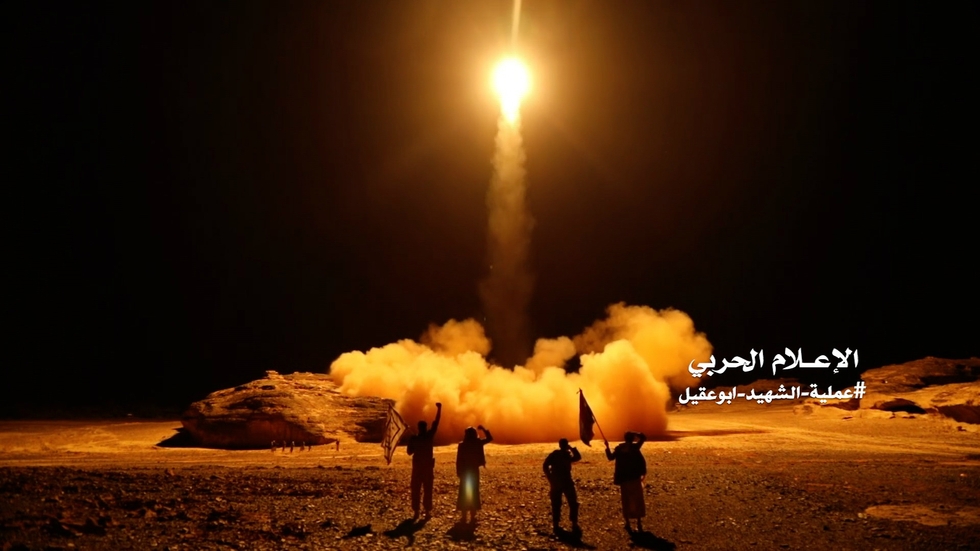
Yemen’s Houthi rebels announced on Monday they would cease drone and rocket attacks on the Saudi-led coalition, following an appeal by the United Nations.
If upheld, the move would constitute a concrete step towards de-escalating a conflict that has driven as many as 18 million Yemenis to the brink of famine.
"After our contacts with the UN envoy and his request to stop drone and missile strikes ... We announce our initiative ... to halt missile and drone strikes on the countries of aggression," Mohammed Ali al-Houthi, a top rebel leader, said in a statement.
The Houthi statement comes after intense efforts by UN envoy Martin Griffiths to bring Yemen’s warring parties to the negotiations table before the end of the year.
The UK presented a draft resolution to the UN Security Council on Monday that calls for an immediate truce in the port city of Hodeidah and sets a two-week deadline for the warring sides to remove all barriers to humanitarian aid.
The draft resolution, which was seen by AFP, urges "parties to introduce a cessation of hostilities in Hodeida governorate, to end all attacks on densely populated civilian areas across Yemen and to cease all missile and UAV (unmanned aerial vehicle, or drone) attacks against regional countries and maritime areas."
A vote on the draft resolution has not yet been announced.
Houthi, head of the rebels’ Higher Revolutionary Committee, tweeted that he hoped his group announce "readiness to suspend and halt all military operations".
He called on "all [Houthi] official Yemeni sides to issue directives to end launching missiles and drones against aggression countries... in order to deprive them of any reason to continue their aggression and siege".
The Houthis, he said, should be ready "to freeze and stop all military operations on all fronts" to achieve "a just and honourable peace".
Pro-Yemeni government forces, backed by Saudi Arabia and the United Arab Emirates, have halted their assault on the strategic rebel-held port city of Hodeidah.
Waging peace
Previous attempts to forge peace in Yemen have proved unsuccessful.
In September, Griffiths’s first attempt to bring the Houthis and pro-government forces together fell short when the rebels refused to attend talks in Geneva.
The reason cited at the time, Saudi Arabia’s refusal to allow wounded Houthis evacuation abroad, has now been resolved, following the intervention of the UK Foreign Secretary Jeremy Hunt last week.
Hunt’s intervention signals growing international concern over the Yemen war, which the UN has described as the world’s worst humanitarian disaster.
On Monday, the UK is expected to table a draft resolution calling for peace at the UN.
The British initiative comes after talks Hunt held with Saudi Crown Prince Mohammed bin Salman, who apparently "threw a fit" when told about the planned resolution.
Pro-government forces' assault on Hodeidah has intensified attention on the conflict, as 70 percent of all Yemen’s food and humanitarian aid passes through the Red Sea city’s port.
Some 18 million of Yemen’s population of 28 million require aid, eight million of which are close to starvation.
According to Save the Children, in 2017 130 children died every day due to malnutrition.
Were services at Hodeidah port to be interrupted, it would have catastrophic consequences throughout the impoverished country.
Saudi Arabia, which intervened to prop up the government of President Abd Rabbuh Mansour Hadi in 2015 after the Houthis took control of much of the country, including the capital Sanaa, has been incensed at rockets the rebels have fired over the border.
Houthi missiles have landed or been shot down near the Saudi capital Riyadh, Mecca and key facilities belonging to oil giant Aramco.
The rebels have also claimed attacks on major international airports in the UAE, such as Dubai and Abu Dhabi, which have been denied by Emirati authorities.
New MEE newsletter: Jerusalem Dispatch
Sign up to get the latest insights and analysis on Israel-Palestine, alongside Turkey Unpacked and other MEE newsletters
Middle East Eye delivers independent and unrivalled coverage and analysis of the Middle East, North Africa and beyond. To learn more about republishing this content and the associated fees, please fill out this form. More about MEE can be found here.


